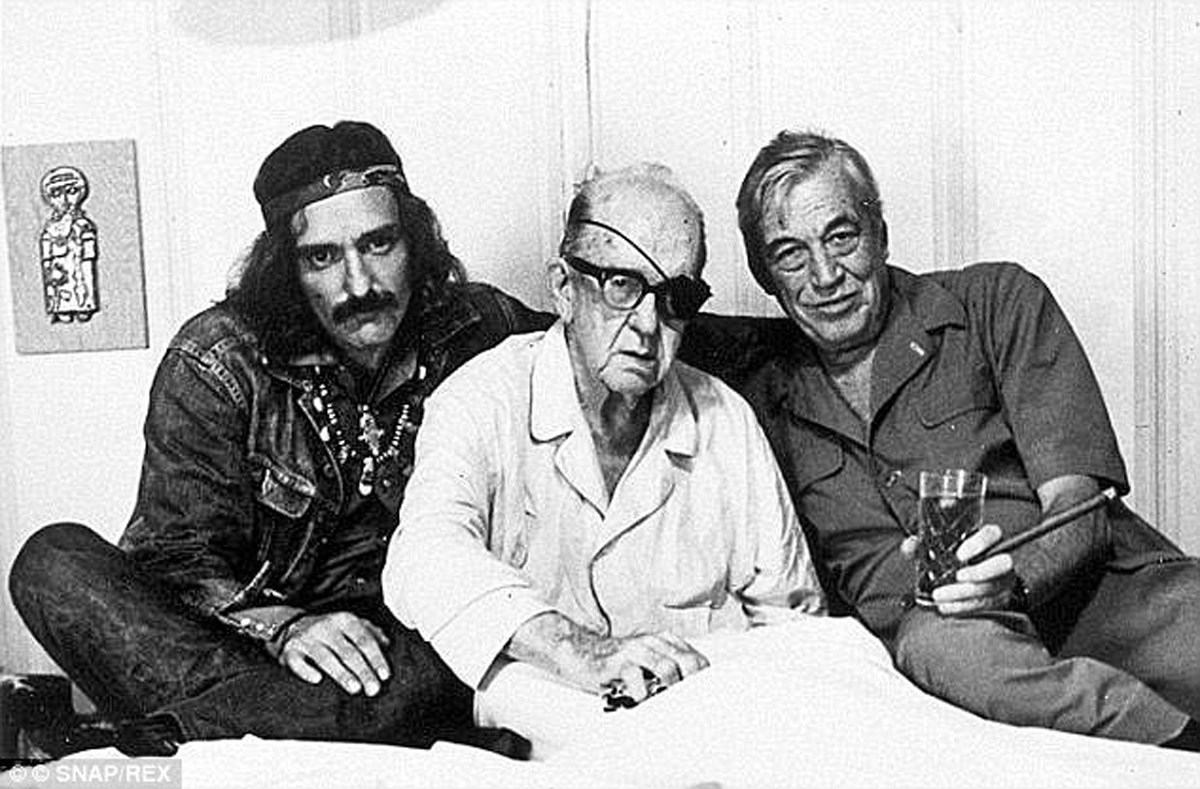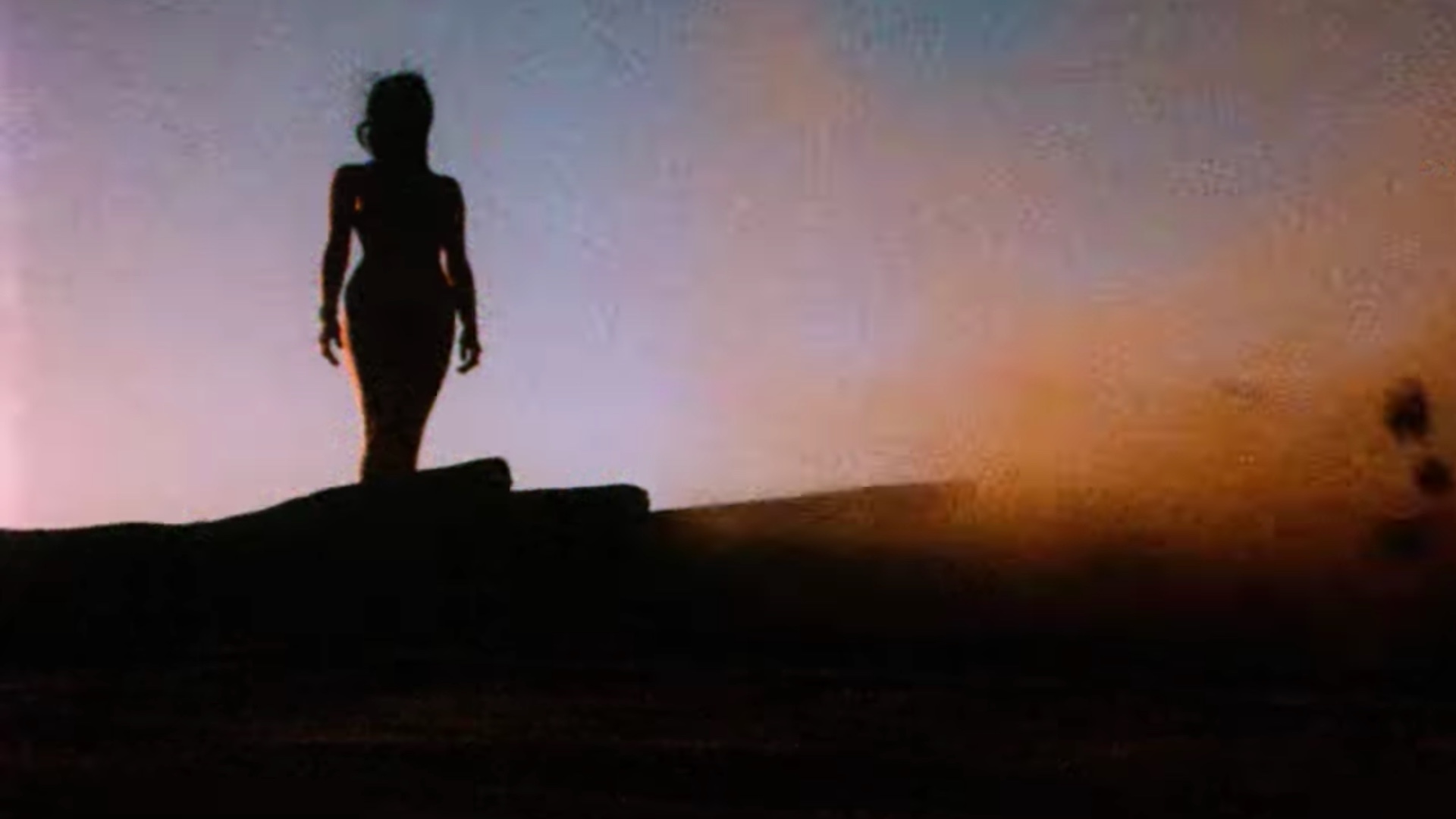Summary:
A mockumentary about the last day of an aging eccentric film director struggling to put together his latest film.
My Thoughts:
I’m going to be honest with you and admit that I am not overly familiar with the work of Orson Welles. I’ve seen “Citizen Kane” once, and I thought it was really good… and that’s about my extent with Welles. He’s a director that I’ve always intended to get around to, but, like any cinephile knows, there are always other things to watch, and personal preferences make certain directors that appeal to us more than others- “Citizen Kane” was great, yeah, but I never really thought Welles was someone I’d fall head over heels in love with, like I have with Bergman (“Persona”) or Fellini (“La Dolce Vita”). But, the historical significance of this film alone made me interested, add to that that the film had been in production limbo for thirty years, and the fact that it’s on Netflix so I don’t even have to go out of my way to try to find it, and I was sold.
This is no “Citizen Kane”, that’s for sure, but it is a good movie; one that will appeal far more to the well traveled cinephile than mainstream audiences. This is a filmmaker’s film. It’s the kind of movie that I think some cinephiles will love it and a lot of cinephiles will find it good (not great), but I would be surprised if many average moviegoers make it all the way through.
“If the audience can’t get it then what’s the point of even going to the movie?”
A mockumentary that revolves around the last day of eccentric alcoholic and famous film director Jake Hannaford (John Huston, “Chinatown”) struggles to complete his latest film as he grapples with the loss of his lead actor John Dale (Robert Random, “Village of the Giants”) and the production around him seems to sink slowly into disarray. Hannaford’s last day alive begins on set and then moves to a party at his home- throughout we’re shown glimpses of the final film that Hannaford is working on.
So, for those who don’t know the story behind this film, it was Welles’s last film, one that he struggled to finish all the way up until his death. The film originally began shooting in 1970, but that photography focused on the film within a film element of the movie (a highly experimental film, I might add, which reminded me in a way of Louis Malle’s “Black Moon”) as Welles was unsure who would play Hannaford. The production ran into a bit of trouble; Welles had a grandiose idea about how this film would come to pass, he said of the film during an interview that he had written four different screenplays, but he wanted the film to be mostly ad-libbed. In 1974 the film ran into more financial issues and there was a pause in production. The film resumed and paused production a number of times through ’76, and by ’79 Welles had edited a decent amount of the project, but there were still many scenes missing. Welles died in 1985 and the project remained unfinished for another thirty years until in 2018, the film was finally cut together and released for Netflix (I’m simplifying this obviously- there is a documentary on the subject called They’ll Love Me When I’m Dead, which was released at the same time as this film).
As I stated above, this is a filmmaker’s film. It is about filmmaking, while also deconstructing the process of filmmaking, and in that way it’s sort of meta- taking that meta-ness a step further is the fact that this is a film about a director that doesn’t know how to finish his final film, which is exactly what this movie is. For those reasons alone, if you consider yourself a cinephile, this is a must-try-to-watch. The way this story progresses- the hectic, experimental cutting and harried storyline that jumps all over but never really goes anywhere- is incredibly ambitious. Watching the film is like being caught in the film limbo in which this movie was caught for years; it’s sometimes exciting, sometimes frustrating, but always compelling.
As a huge Fellini fan (funny to say that now, as a year ago I was pretty unfamiliar with him), I find myself drawing comparisons to “8 ½”, which I find to be a far superior film. This movie is really good at conveying the sense of organized chaos that is the film industry, but I never really felt anything for Hannaford as I did for Guido in “8 ½”. Hannaford is a much more dislikeable character; he’s a drunk, he’s a bit of a bastard, and he’s a womanizer who has a thing for girls much too young for him. I actually like having a character that I can sort of detest as a protagonist, but again I can’t imagine that will play well for mainstream audiences. Jake is absolutely aware of the larger than life shadow that he himself casts (much like Welles was aware of Citizen Kane’s lasting shadow on his career), and he seems to enjoy that as much as hate it. His character is one that is far more interesting than many characters today, but that doesn’t mean I want to spend a lot of time watching him.
What I find most interesting is the way this movie plays out through the editing. The film is shot in a mockumentary style, with cameras clearly visible in many of the shots. The mockumentary is meant to be a chronicle of Jake’s last day before he drove his car off a cliff and died (this is revealed in the opening monologue, so I really feel no need for a spoiler tag). But while Jake is trying to finish his film, we’re also shown various other people’s views of him, from reporters to aging actresses to old partners. The film changes aspect ratios, from color to black and white, different cameras all together- the cinematography always looks great, and the editing is so fast paced that it’s hard not to be completely captured by the film entirely.
I think the biggest problem with the film is that it doesn’t entirely know what it wants to say- instead, it presents a man as he is: flawed and still searching for something that will make him stand out. I know you’re sick of my Fellini references at this point, but for me Hannaford feels like a mix between Marcello Mastroianni’s character in “La Dolce Vita” and his character in “8 ½”. I feel that the reason Welles had troubles finishing this film is because he wasn’t exactly sure what he wanted to say with the end of this movie, and as a result, it feels like we’re watching a movie that is technically a masterpiece, but it lacks real heart.
Verdict:
This is a good movie. Writing and thinking about it more made me like it a little bit more than I had originally. I think, sadly, this film will probably fly under the radar because it was made for an audience that isn’t really that prevalent anymore- the art-house audience. I feel like this movie is strictly for serious cinephiles, though, I’d be interested to hear what a mainstream moviegoer would think of this movie. If you do consider yourself a cinephile, give it a go. I think it’s a must see for fans of film, even if it is just to see it for the historical importance.
Review Written By:







